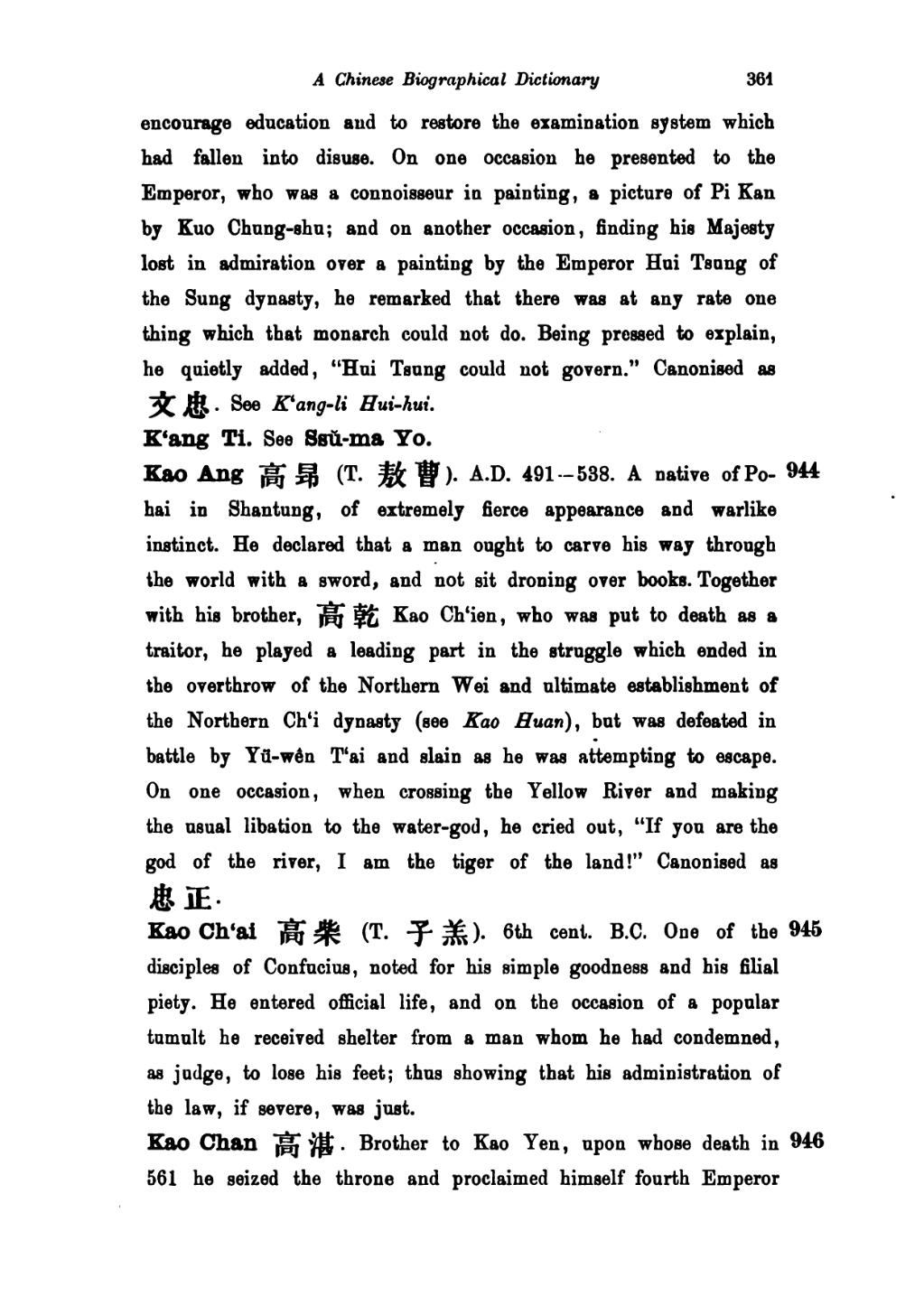encourage education and to restore the examination system which had fallen into disuse. On one occasion he presented to the Emperor, who was a connoisseur in painting, a picture of Pi Kan by Kuo Chung-shu; and on another occasion, finding his Majesty lost in admiration over a painting by the Emperor Hui Tsung of the Sung dynasty, he remarked that there was at any rate one thing which that monarch could not do. Being pressed to explain, he quietly added, "Hui Tsung could not govern." Canonised as 文忠. See K'ang-li Hui-hui.
K'ang Ti. See Ssŭ-ma Yo.
944
Kao Ang 高昂 (T. 敖曹). A.D. 491-538. A native of Po-hai in Shantung, of extremely fierce appearance and warlike instinct. He declared that a man ought to carve his way through the world with a sword, and not sit droning over books. Together with his brother, 高乾 Kao Ch'ien , who was put to death as a traitor, he played a leading part in the struggle which ended in the overthrow of the Northern Wei and ultimate establishment of the Northern Ch'i dynasty (see Kao Huan) but was defeated in battle by Yü-wên T'ai and slain as he was attempting to escape. On one occasion, when crossing the Yellow River and making the usual libation to the water-god, he cried out, "If you are the god of the river, I am the tiger of the land!" Canonised as 忠正.
945
Kao Ch'ai 高柴 (T. 子羔). 6th cent. B.C. One of the disciples of Confucius, noted for his simple goodness and his filial piety. He entered official life, and on the occasion of a popular tumult he received shelter from a man whom he had condemned, as judge, to lose his feet; thus showing that his administration of the law, if severe, was just.
946
Kao Chan 高湛. Brother to Kao Yen, upon whose death in 561 he seized the throne and proclaimed himself fourth Emperor

